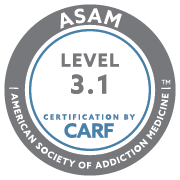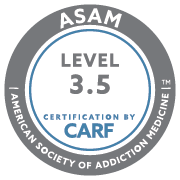September is National Recovery Month during which new evidence-based treatment and recovery practices are highlighted. The strong and proud recovery community, including the dedicated service providers and community members across the nation who support the millions of individuals who are proudly living their lives in recovery, as well as their family members and loved ones, comes together to. This year’s Recovery Month theme is “Join the Voices for Recovery: Celebrating Connections.”
The 2020 National Recovery Month theme, “Join the Voices for Recovery: Celebrating Connections,” reminds people in recovery and those who support them, that we all have victories to celebrate and things we may wish we had done differently. This is true of everyone and, as in most cases, we cannot do it alone. Recovery Month will continue to educate others about substance use disorders and co-occurring disorders, the effectiveness of treatment and recovery services, and that recovery is possible. All of us, from celebrities and sports figures to our co-workers, neighbors, friends, and family members, throughout our lives have experienced peaks and valleys, both big and small. But, with strength, support, and hope from the people we love, we are resilient.
National Addiction Professionals Day will be celebrated on September 20, 2020, as part of National Recovery Month. Started by NAADAC, the Association for Addiction Professionals in 1992, the day was established to commemorate the hard work that addiction professionals do on a daily basis. Addiction professionals provide people in need the support and tools necessary to address their addictions and move towards recovery. The need for addiction and mental health professionals has never been greater, and we can support their commitment to serving those in need by recognizing the vital role they play in the lives of our friends, our families and our community.
The addiction professionals at Rimrock are committed to helping those struggling with addiction and meeting them where they are. This means meeting individuals where they are in their journey towards recovery and meeting where they can receive treatment. Rimrock has greatly expanded the treatment we are able to provide through telehealth with the introduction of Rimrock Connect, allowing us to connect those in need with addiction and mental health professionals online or by phone.
Faces & Voices of Recovery has created a new Recovery Month website that will host all Recovery Month events and assets that make this celebration possible. Faces & Voices of Recovery works to hard to support individuals in long-term recovery from drug and alcohol addiction and their family members, friends and allies in a variety of ways, including, capacity building in support of the national recovery movement, fighting the stigma of addiction, creating groundbreaking recovery messaging trainings and more. Faces & Voices of Recovery is dedicated to organizing and mobilizing the over 23 million Americans in recovery from addiction to alcohol and other drugs and families, friends and allies into recovery community organizations and networks. They work to promote the right and resources to recover through advocacy, education and demonstrate the power and proof of long-term recovery.
If your organization is interested in learning more about mental health and substance use issues facing our community, Rimrock staff provides education and outreach presentations at no charge. Please call us at 406-248-3175 to learn more.
And, if you need help or know someone struggling with substance use or their mental health, we are here for you 24/7. Please call 800-227-3953 or complete our online request form to connect with our team of professionals. Rimrock Is Recovery.





